1. Father Knows Best (1954–1960)
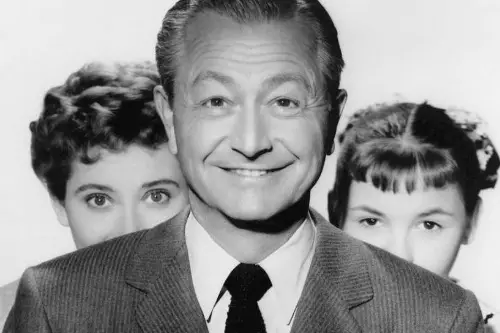
Before the 1950s, American parenting was often depicted as strict and authoritarian, but Father Knows Best introduced a more patient and understanding father figure. Jim Anderson wasn’t just a disciplinarian—he actually listened to his kids, offering wisdom rather than just punishment. This show helped reinforce the idea that dads could be emotionally engaged and nurturing, not just the distant breadwinners, Elliott Katz from USA Today explains. It set the tone for future TV dads who would follow a more affectionate, involved parenting style.
While the show still upheld traditional gender roles, it painted an idealized version of the American family where problems could be solved with communication and love. Parents watching at home saw a model of a father who balanced authority with warmth, which was a shift from the harsher parenting styles of earlier generations. It also reinforced the idea of the “perfect” nuclear family, shaping how many parents aspired to raise their kids. Even if it wasn’t totally realistic, it undeniably left its mark on parenting expectations.
2. The Brady Bunch (1969–1974)
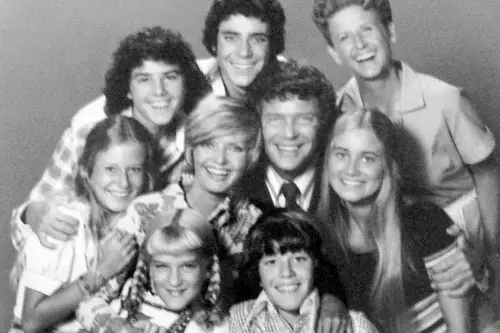
Blended families weren’t often shown on TV before The Brady Bunch, and this show made them seem not just normal but downright wholesome, according to Jenn Morson from Parade. The series tackled the challenges of step-parenting and sibling rivalries with humor and heart, offering a new blueprint for families coming together after divorce or loss. Mike and Carol Brady worked as a team, showing that successful parenting didn’t have to follow rigid traditional roles. The show reassured parents that love and patience could overcome the difficulties of merging two families.
One of its biggest contributions was normalizing open communication between parents and kids. The Brady parents listened, mediated conflicts, and treated their children’s concerns with respect, which wasn’t always the case in earlier TV families. At a time when divorce rates were rising, this show helped remove some of the stigma around remarriage and stepfamilies. It gave parents permission to embrace modern family dynamics with optimism and support.
3. Good Times (1974–1979)
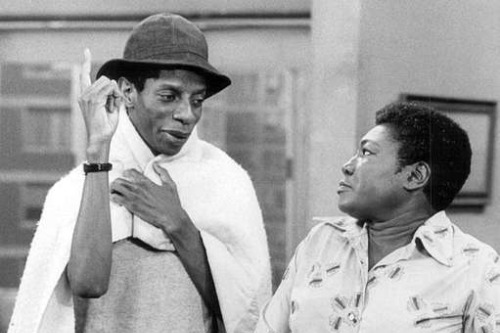
At a time when Black families were rarely portrayed authentically on television, Good Times broke new ground, according to Shelby Stewart from Essence. It showed the struggles of a working-class Black family in Chicago, emphasizing the role of strong parenting even in tough circumstances. James and Florida Evans set a powerful example of parents who valued discipline, education, and love in raising their kids. Their no-nonsense approach showed that good parenting wasn’t just about financial success but about resilience and moral guidance.
Unlike many sitcoms that glossed over real-world struggles, Good Times addressed issues like poverty, racism, and unemployment while still showcasing a loving household. Florida Evans, in particular, demonstrated how a mother’s strength could hold a family together, even in hard times. The show reinforced the importance of community, faith, and strong values in parenting. It gave viewers—especially Black parents—representation that felt real and deeply meaningful.
4. Eight Is Enough (1977–1981)

With eight kids to raise, Tom Bradford was the ultimate hands-on dad, proving that single fathers could handle parenting solo. After the real-life death of the actress who played his wife, the show pivoted to focus on how Tom managed as a widowed parent, something rarely explored on TV at the time. He wasn’t just a disciplinarian—he was affectionate, supportive, and willing to learn from his mistakes. The show emphasized that parenting is a team effort, even when one parent is missing.
It also helped change the way people saw large families, showing that raising many children didn’t have to mean chaos and dysfunction. Instead of the “perfect” TV family, Eight Is Enough presented a more relatable version—one where problems were real, but love held everything together. The show also tackled teenage rebellion, dating, and mental health, encouraging parents to have honest conversations with their kids. It made single fathers more visible and respected in the parenting world.
5. The Cosby Show (1984–1992)
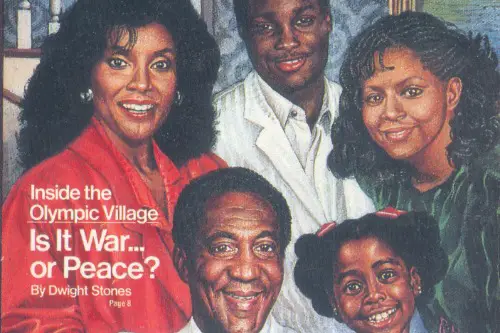
Before The Cosby Show, Black families on TV were often shown struggling, but the Huxtables shattered stereotypes by presenting a highly educated, successful Black household. Cliff and Clair Huxtable demonstrated a parenting style that was firm but playful, balancing discipline with humor and warmth. They encouraged independence in their children while maintaining high expectations, setting a new standard for positive Black representation on TV. Parents across America, regardless of race, saw an example of parenting that was loving, involved, and aspirational, according to Jake Flanagin from The New York Times.
The show also emphasized the importance of education, respect, and responsibility in raising kids. It showed that parenting wasn’t just about enforcing rules but about shaping kids into thoughtful, accomplished individuals. Cliff’s ability to joke with his children while still commanding respect made him an especially beloved TV dad. It helped shift American parenting toward a more engaged, emotionally intelligent style.
6. Full House (1987–1995)
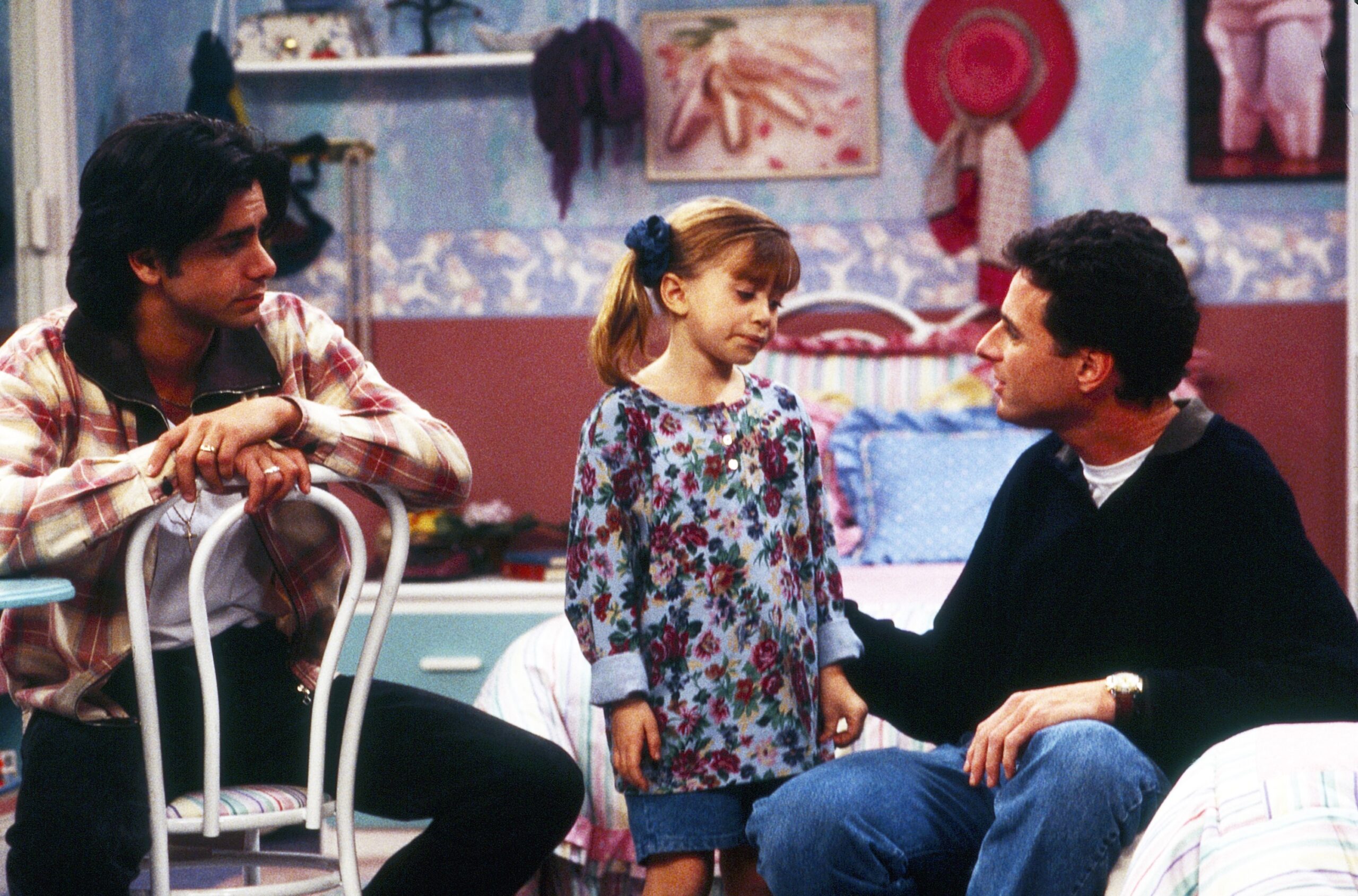
Single parenting got another positive spin with Full House, which showed a widowed father raising three daughters with the help of his best friend and brother-in-law. Danny Tanner’s meticulous, sentimental parenting style contrasted with Uncle Jesse’s cool factor and Joey’s comic relief, giving kids multiple role models. The show reinforced the idea that family isn’t just about biological parents—it’s about the people who step up. It expanded the definition of what a supportive, loving household could look like, according to Danielle Bruncati from TheThings.
Another major shift the show introduced was how openly emotions were expressed. “Heart-to-heart” talks became a staple, normalizing the idea that dads could be affectionate and emotionally available. The show reassured parents that it was okay to talk through feelings rather than just enforcing rules. It helped fathers embrace a more nurturing, communicative role in their children’s lives.
7. Roseanne (1988–1997)
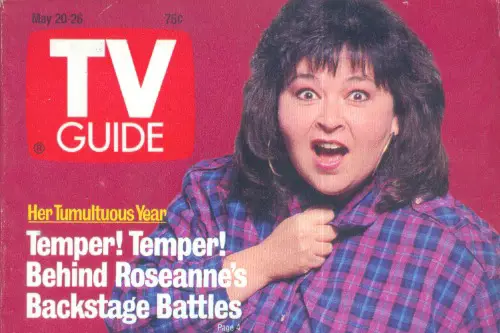
Before Roseanne, most TV parents lived in spotless homes and had an unrealistic level of patience. But Roseanne and Dan Conner felt real—they argued, made mistakes, and worried about bills, just like millions of working-class parents. The show brought an authenticity to parenting that hadn’t been widely portrayed before, showing that good parenting doesn’t always mean having all the answers. Their approach was sarcastic, tough-loving, and deeply devoted, which many parents found relatable.
The show also tackled real-life struggles like unemployment, teenage rebellion, and body image issues in a way that felt refreshingly honest. It reminded parents that it’s okay to be imperfect and that what really matters is supporting your kids through life’s ups and downs. Unlike other family sitcoms, Roseanne didn’t sugarcoat the difficulties of raising kids on a tight budget. It gave working-class parents a voice and made them feel seen.
8. Boy Meets World (1993–2000)

Boy Meets World wasn’t just about Cory Matthews growing up—it was about how his parents, Alan and Amy, adapted to parenting a teenager. They balanced discipline with understanding, showing that the best parenting involved evolving with your kids rather than just enforcing rules. The show emphasized the importance of open communication, particularly in episodes dealing with tough topics like peer pressure, relationships, and loss. Parents watching saw a model of how to guide kids through adolescence without being overbearing.
One of the show’s biggest contributions was how it portrayed father figures. Alan Matthews wasn’t just a dad—he was a mentor, as was Mr. Feeny, who provided wisdom and tough love from the sidelines. The idea that kids need multiple role models—parents, teachers, and family friends—became more accepted in parenting culture. Boy Meets World reminded parents that raising good kids was a team effort and that guidance could come from many sources.
9. Malcolm in the Middle (2000–2006)
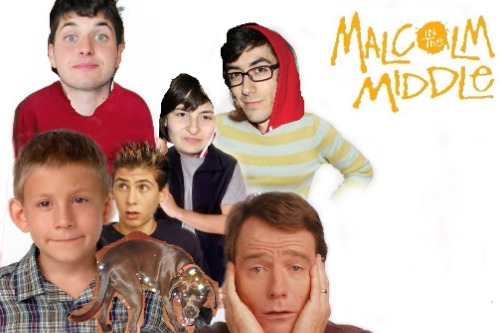
Gone were the days of the perfect, soft-spoken TV mom—Lois in Malcolm in the Middle was loud, strict, and often exhausted, but she got things done. The show introduced a refreshingly chaotic and brutally honest look at parenting, proving that good parents don’t have to be endlessly patient or put together. Lois and Hal showed that sometimes, raising kids means making tough calls, admitting when you’re wrong, and embracing the messiness of family life. They gave struggling parents permission to laugh at the madness of raising multiple kids.
Unlike traditional sitcom families, Malcolm’s household was dysfunctional but loving, showing that real parenting isn’t always picture-perfect. The show also broke from the typical “favorite child” trope, instead depicting a family where everyone had to fight for attention and survive the daily chaos. Parents watching saw a more relatable version of their own experiences, where raising kids meant constant negotiation and creative problem-solving. It made it clear that love isn’t about perfection—it’s about being there, no matter how messy life gets.
10. Gilmore Girls (2000–2007)
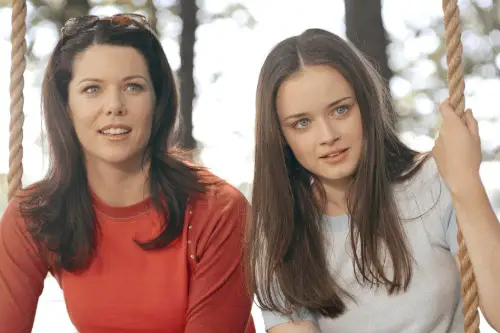
Lorelai Gilmore redefined single motherhood on Gilmore Girls, proving that a parent-child relationship could be built on friendship as much as authority. Unlike the strict parents often portrayed on TV, Lorelai encouraged open dialogue with Rory, making their dynamic feel more like best friends than mother and daughter. This approach resonated with parents who wanted to foster closer, more honest relationships with their kids. It showed that parenting could be warm, fun, and still effective.
The show also highlighted the complexities of generational parenting differences, particularly through Lorelai’s strained relationship with her own mother, Emily. It made viewers reflect on how parenting styles evolve and how breaking cycles of rigid authority can lead to healthier relationships. Gilmore Girls encouraged parents to listen more and impose less, reinforcing the idea that mutual respect is key in raising independent kids. It was a major shift from the idea that parents had to rule with an iron fist.
11. The Bernie Mac Show (2001–2006)
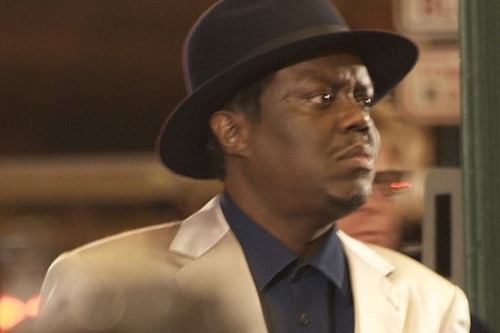
Most TV parents tiptoed around discipline, but Bernie Mac brought back a no-nonsense, old-school parenting style—except with a comedic twist. As a man suddenly raising his sister’s kids, Bernie took on the challenge with tough love, setting clear rules while still being a hilarious and caring father figure. His approach reminded viewers that parenting doesn’t have to be sugarcoated to be effective. He proved that respect and discipline could coexist with humor and warmth.
The show also stood out because it tackled Black parenting in a way that felt real and unapologetic. It didn’t shy away from conversations about race, responsibility, and survival in a tough world. Bernie’s firm yet loving approach resonated with many parents who believed in raising strong, respectful kids while still showing them affection. The Bernie Mac Show helped reinforce that there’s no single way to parent—sometimes, tough love is the best love.
12. Modern Family (2009–2020)
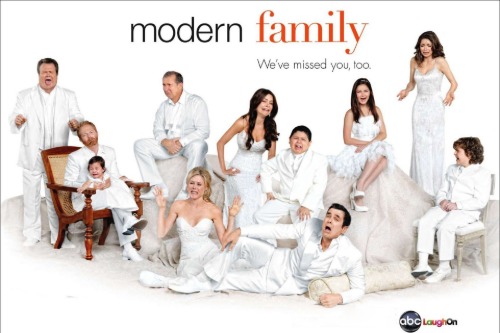
Modern Family completely reshaped what the American family looked like on TV. It showed same-sex parents, blended families, and unconventional parenting styles, making it clear that no single approach was “correct.” The dynamic between Phil and Claire Dunphy, in particular, highlighted how different parenting styles—goofy and laid-back vs. structured and intense—could still work together. The show reassured parents that imperfections and quirks weren’t flaws but just part of raising kids in today’s world.
Perhaps its biggest contribution was how it normalized LGBTQ+ parenting through Mitch and Cam’s adoption storyline. Their struggles and triumphs as fathers helped open conversations about non-traditional families in American households. By presenting a variety of parenting styles, Modern Family encouraged more acceptance and understanding of different family dynamics. It showed that love, not structure, is what really defines good parenting.
13. Black-ish (2014–2022)
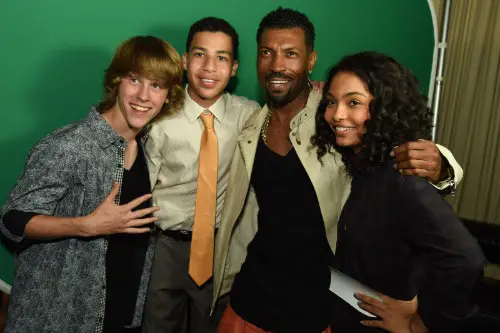
Few shows tackled race and parenting as directly as Black-ish, which explored what it meant to raise Black children in modern America. Dre and Bow Johnson navigated the complexities of teaching their kids about racial identity, privilege, and cultural heritage while balancing humor and heart. The show made conversations about race and parenting mainstream, helping many parents—Black and non-Black—reflect on how they discuss these issues with their own children. It made clear that parenting isn’t just about rules; it’s about preparing kids for the world they’ll face.
Beyond race, Black-ish also tackled issues like gender roles, mental health, and generational differences in parenting. It showed that raising socially conscious kids required openness, honesty, and sometimes tough conversations. The show reinforced that parenting isn’t just about providing—it’s about educating, empowering, and equipping kids with the knowledge to navigate society. It set a new standard for TV shows willing to tackle real-world parenting challenges head-on.
14. This Is Us (2016–2022)
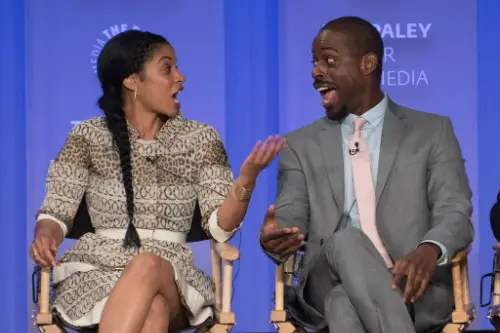
No show in recent memory made people rethink parenting quite like This Is Us. Jack and Rebecca Pearson’s journey through parenthood—from raising triplets to dealing with grief—felt deeply raw and real. The show tackled themes of loss, trauma, adoption, and identity in a way that struck a chord with many parents. It reminded viewers that parenting is a lifelong process filled with mistakes, growth, and second chances.
One of its biggest contributions was its portrayal of emotional vulnerability in fathers. Jack Pearson, despite his flaws, set a new standard for TV dads by being deeply present, affectionate, and emotionally expressive. It also emphasized the complexities of adoption and interracial families, giving parents more insight into raising children with different backgrounds. This Is Us wasn’t just a family drama—it was a masterclass in the highs and lows of parenting.


